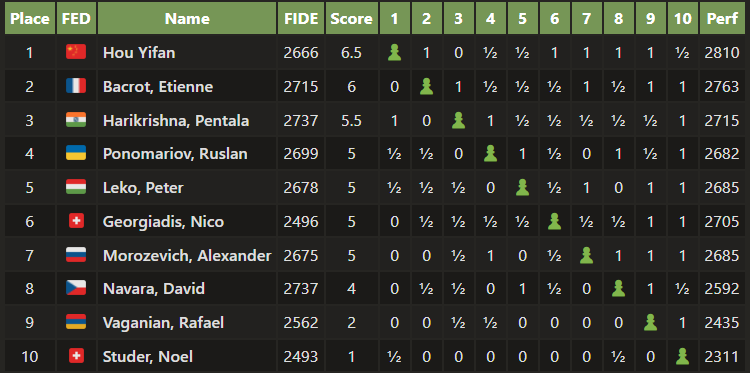There’s a quiet belief that keeps most people stuck—in chess, in life, in nearly every serious pursuit.
It’s not always loud. But it’s there.
It whispers things like:
- “You shouldn’t struggle this much.”
- “If you were really good, this would feel easier.”
- “There must be a better way to improve—without mistakes, without pain.”
And that belief is this:
That we can grow, succeed, and improve—without ever going through hardship.
It sounds nice. But it’s a lie. And it’s a lie that cost me dearly.
My Recovery Taught Me What Chess Never Could
Years ago, I suffered a traumatic brain injury.
The early challenges were obvious: I had constant headaches, my focus was gone, and even daily tasks felt overwhelming.
But the biggest problem came later—after I looked “fine” on the outside.
I stopped trusting myself in difficult moments.
I was afraid of hardship. I feared any situation I couldn’t fully control.
I avoided uncertainty like the plague.
Even something as simple as planning a trip became stressful. If the day didn’t go exactly how I imagined, I’d feel lost. Unstable. Off.
It wasn’t that I couldn’t function.
It was that I had started believing I shouldn’t ever have to suffer again.
But life doesn’t work that way. And chess? Definitely not.
The more I tried to protect myself from difficulty, the more fragile I became. The more pressure I felt, the more anxious I got—because I was convinced: “I can’t afford for this to go wrong.”
Eventually, I realized: it wasn’t the pain that was the problem. It was my fear of pain.
How This Shows Up in Chess
You see the same pattern in chess all the time:
- You feel like you need to memorize every line of your opening repertoire so you never get out of theory.
- You think you need to master all endgame theory to avoid one critical mistake.
- You search for the perfect training method that guarantees improvement without confusion or effort.
And all of it is built on the same fantasy:
“If I prepare enough, I’ll never feel pain. I’ll never be confused. I’ll never make a mistake.”
But that’s not preparation. That’s fear.
And ironically, it makes your chess experience way more stressful.
Instead of seeing difficulty as normal, you start seeing it as a threat.
Every mistake feels like a sign that you’re failing. Every lost game becomes a crisis. Every tough puzzle feels like proof you’re not improving fast enough.
That mindset is exhausting.
And unsustainable.
Why We Believe in This Fantasy
This fantasy—that we can grow without pain—doesn’t come from nowhere.
We’re conditioned to believe it.
Social media feeds us a steady diet of perfection:
- Everyone looks amazing.
- Everyone’s achieving.
- Everyone’s winning, traveling, building businesses, crushing life.
So what happens?
We compare our messy reality to everyone else’s highlight reel.
And we start to believe that something is wrong with us if our days feel hard.
But here’s the truth:
The good moments you see online? They’re a small part of those people’s lives too.
What doesn’t get posted is the frustration. The confusion. The fatigue. The doubt.
So we keep striving for this imagined life, where progress feels effortless—and we panic when reality doesn’t match.
And when we do hit a wall, many people do something even worse:
They quit.
The Hidden Cost of Quitting When Things Get Hard
Let’s say you play a terrible tournament. You lose badly. You feel embarrassed.
So you take three weeks off. You don’t look at a board. You avoid the game entirely. That might feel like relief at first. But here’s what you’ve really done:
You’ve trained your brain to believe that difficulty is dangerous. You’ve sent yourself a message:
“This game is so painful that I need to hide from it.”
And what happens the next time you play?
- You’re more anxious.
- You feel more pressure.
- You’re more afraid to fail—because now, failure means emotional shutdown.
And ironically, that fear increases your chances of failing again.
It becomes a vicious cycle.
The Right Way to Build Self-Trust
Now, let’s flip the script.
One of the most painful moments in my chess career came at Biel 2017—a major tournament on my home turf in Switzerland.
I started okay: two draws in the first three rounds.
Then, I lost six games in a row.
Six. Straight. Losses.

In front of everyone I knew. On the biggest stage I had ever played.
It hurt—deeply. But I didn’t let it break me.
First, I gave myself a little space. Then, I recovered.
And then—I came back. I kept training. I kept playing. I kept improving.
And over time, that experience became a pillar of confidence. To this day, whenever I face something difficult in chess or life, I remind myself:
“This isn’t as bad as Biel 2017. I survived that. I’ll survive this.”
That’s the real solution.
So What’s the Actual Answer?
It’s not avoiding pain. It’s not glorifying it either.
It’s intentionally, voluntarily exposing yourself to challenge—so you build the belief that you can handle it.
You do hard things on purpose. You let yourself fail. You sit with discomfort. You study a difficult game. You push through a tough puzzle set. You analyze a loss without flinching.
And every time you do that, you train one powerful muscle:
Self-trust.
The belief that you can handle hard things. That you don’t need to run. That setbacks don’t define you. That the pain will pass—and you’ll still be standing.
And just like in physical training, that muscle needs to be worked consistently. You don’t get it once and keep it forever. You keep coming back to difficulty. Voluntarily. Gradually.
And with every rep, you get stronger.
But Don’t Swing Too Far: Pain Isn’t the Goal
There’s a danger, though. Once you realize pain can be good, there’s a temptation to overcorrect.
You go from “I must avoid all discomfort” to “I must suffer every single day.”
You start thinking:
- “If I’m not in pain, I’m not growing.”
- “Real achievers grind 16 hours a day.”
- “Sleep is for the weak.”
You see this all the time in the “hustle” world, especially with male influencers.
Guys like David Goggins talk about running ultra-marathons barefoot, refusing water, going to war with their body every day. And sure, there’s something powerful about mental toughness.
But pain for the sake of pain is not growth.
At some point, it’s just trauma.
I fell into this trap myself while preparing for my half-marathon. I overtrained. Ignored the signs. Pushed beyond reason. And it cost me six weeks of forced rest.
During the race, I pushed myself through the pain—but I did so knowing I was safe from long-term damage.
That’s the balance.
Push yourself. But recover.
Pain is a tool. Not a lifestyle.
This Also Applies to Love
This philosophy doesn’t just shape how we train or compete. It also shapes how we love.
I recently married Alessia, the love of my life. We have a beautiful, fulfilling relationship that I’m incredibly grateful for.

But let me be clear: That doesn’t mean it’s always been easy. What makes our relationship strong isn’t that we’ve avoided hardship.
It’s that we’ve gone through it—together.
We’ve had disagreements. We’ve had moments where we wanted very different things. She’s an extrovert. I’m an introvert. We have different needs, different emotional rhythms, and different ways of handling stress.
But when things got difficult, we didn’t walk away. We talked. We faced the discomfort. We had honest, sometimes painful conversations. And because of that, we grew closer—not despite the hard moments, but because of them.
So many people I speak to are waiting for a perfect relationship that never has any problems.
And when the first real challenge arises, they panic—and let go of something that could have become truly meaningful. But love isn’t about perfection.
It’s about willingness—to face things, to learn, to keep showing up.
Now, Alessia and I both know:
“If we could get through that, we’ll get through the next thing too.”
That confidence comes from the same place as it does in chess or life: Not from avoiding difficulty, but from growing through it.
What the Best in the World Do Differently
If there’s one thing I’ve learned, it’s this:
The biggest difference between high achievers and those who stay stuck isn’t whether they face hardship. It’s how they respond to it.
After Biel, I took time off. I even considered quitting, but I didn’t. That’s what made all the difference in the long run.
And that’s what experienced athletes do.
They don’t pretend pain doesn’t exist. They don’t let it crush them either.
Think of Olympic athletes. They might miss a medal by a fraction of a second in one event. And just two days later, they’re back competing—and winning.
That’s the difference. They bounce back. Quickly. Because they’ve trained that muscle. Over and over.
They trust themselves.
And that’s what you need to train too.
Final Thoughts
If you’re improving at something meaningful—chess, business, love, life—pain will find you.
Sometimes it’s physical. Sometimes emotional. Sometimes mental.
The goal isn’t to escape it. The goal is to be ready when it comes.
So:
- Stop chasing perfection.
- Stop avoiding mistakes.
- And stop believing that others have it easy.
Instead…
- Train your self-trust.
- Do hard things, on purpose.
- Recover with intention.
- And come back. Always come back.
Because the real difference between those who grow and those who stay stuck isn’t how many times they fall.
It’s how many times they come back—smarter, stronger, and still moving forward.
Keep improving,
GM Noël
PS: This article was initially sent out to my Newsletter list. If you want to get chess improvement advice for free in your inbox, join 17,000+ chess improvers by signing up for Friday Grandmaster Insights here.
Whenever you’re ready, here is how I can help you:
- Want to know How to train chess well? Check out The Simplified Chess Improvement System. This course taught 800+ students the How of Chess Training. Create your high-quality chess plan and learn how to study each part of Chess, from tactics to openings & endgames. Click here to learn more.
- Rated below 1200 Chess.com? Need to refresh your fundamentals? Check out my course, Beginner Chess Mastery. You’ll learn all the fundamentals, from strategy to how to get the most out of your pieces, tactics, and endgames. You even get a full opening repertoire for free. Click here to learn more.